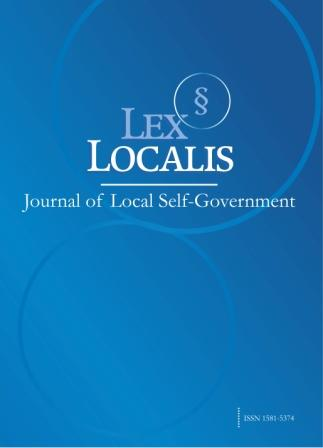WRITING HISTORY IN THE AGE OF THE DIGITAL REVOLUTION : RESEARCH MEANS IN HISTORICAL SOURCES IN THE DIGITAL AGE
DOI:
https://doi.org/10.52152/xpc8rn62Ključne besede:
Historical Writing – Digital Revolution – Electronic Historical Sources – Critical Methodology – Digital History – Reliability – Digital Archives – Historical ResearchPovzetek
At the outset of the 21st century, historical writing is undergoing an unprecedented fundamental transformation,driven by the deluge of the digital revolution that has impacted all facets of human knowledge. Historians are notimmune to these shifts, which have reshaped their tools, methodologies, sources, and even the nature of the questionsthey pose. Historical research has moved from traditional library halls and paper document archives to a vast digitalspace, limited only by internet connectivity, thus providing a tremendous volume of sources and information that wereonce confined to specific places or accessible only to a select few. However, this massive epistemic openness has not come without a cost. Beyond the obvious advantages ofcontinuously available information, ease of search and retrieval, and savings in effort and time, profoundmethodological and scientific challenges have emerged that touch the very core of the historical endeavor. Hence, thecentral problem of this research arises, focusing on the nature of the relationship between rigorous critical historicalmethodology and the requirements of dealing with the new digital environment. It explores how the historian canbalance its immense potential with its inherent dangers, especially with the growing phenomenon of sources ofquestionable credibility and non-scientific, arbitrary websites that threaten to distort historical truth. Accordingly, this research aims to evaluate the historical sources available digitally on the Internet, seeking tomeasure their degree of credibility and accuracy, and to contribute to establishing clear scientific standards for theiroptimal utilization. This will lead to defining mechanisms that historians can rely on to trust these digital sources forthe purposes of academic scientific writing. The importance of the study lies in its attempt to monitor and analyze theprofound impacts of modern technology on historical writings, and to demonstrate the ways in which historicalresearch benefits from new digital methods. It emphasizes that verifying electronic sources in this vast space hasbecome an imperative necessity, requiring the historian to exercise a high degree of caution, vigilance, and criticism,sometimes exceeding that required when dealing with traditional printed texts. To address these problems and achieve the stated objectives, the research adopts a critical analytical descriptiveapproach. It monitors the reality of digital historical sources and the means of researching them, analyzes theircharacteristics, potential, and limitations, and then critiques them in light of the established academic standards in thescience of history. The research also employs pivotal terms such as: "Digital History," which ref ers to historicalpractice using digital tools and methodologies; "Electronic Historical Sources," which are documents, texts, andhistorical materials available in digital form; "Digital Critical Methodology" as an evolution of the traditional critical method to suit the nature of digital sources; "Big Data" in digital archives; and "Information Security" concerning itstheft or forgery in cyberspace. Among the most prominent preliminary findings of the research is that the digital environment has expanded theconcept of a historical source to include materials previously unconsidered, such as social media sites and contentpublished on electronic platforms. It has also imposed a new form of criticism concerned with the provenance of thedigital file, the context of its conversion from analog (paper) to digital form, and techniques for verifying itsauthenticity and integrity from tampering. The results also confirm that the success of the historian in the digital ageis contingent upon their ability to distinguish between outlets for obtaining reliable sources—such as global digitallibraries, academic repositories, and digitized national archives—and random search engines and non-peer-reviewedwebsites. In conclusion, the research finds that the digital revolution has not abolished the role of the historian norreplaced the critical method. Instead, it has increased their responsibility and reaffirmed the importance of their criticalsense and analytical tools, albeit within a new framework that requires developing these tools to keep pace with rapidtechnological transformations. This ensures the continuity of historical writing as a science based on accuracy,reliability, and objectivity in the age of the information deluge.
Prenosi
Objavljeno
Številka
Rubrika
Licenca
Avtorske pravice (c) 2025 Lex localis - Journal of Local Self-Government

To delo je licencirano pod Creative Commons Priznanje avtorstva-Nekomercialno-Brez predelav 4.0 mednarodno licenco.








